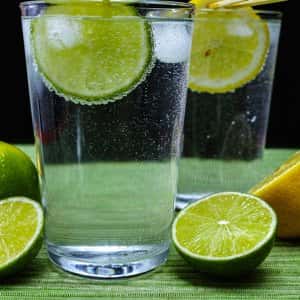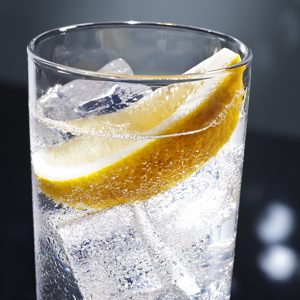
People who have had a kidney stone will tell you the pain is excruciating. They would do almost anything to avoid a repeat performance. So we were not surprised to hear from a reader who wanted to reduce her risk for another kidney stone. We were puzzled that she was worried about seltzer water.
Will Seltzer Water Trigger a Kidney Stone?
Q. I have always watched my diet, exercised and consumed lots of water, never soda. When the hot flashes of menopause became too strong, I wanted something besides water. According to the research I found, flavored seltzer water could be the answer. I drank tons of it.
After about 8 months, a kidney stone hit out of nowhere. The emergency room nurses and doctors told me it was the carbonation. I haven’t touched seltzer water since.
What Are the Risk Factors for a Kidney Stone?
A. Hot summer months are the time of year that kidney stones are most likely to show up. Perhaps that is because people are more likely to become dehydrated when the temperature rises. This concentrates the urine, which makes stone formation more likely.
The number one recommendation for preventing stone formation is to drink lots of water—between 2.5 and 4 liters daily (Journal of Urology, March, 2013). That is presumably what you were doing.
The Story on Seltzer:
Carbonated water (aka seltzer water) is a bit more complicated. Soft drinks, especially colas, seem to increase the risk of repeat kidney stones (Annals of Internal Medicine, Nov. 4, 2014). Mineral water, whether still or sparkling, did not increase the likelihood of a problem.
Carbonation might even be somewhat beneficial (Urolithiasis, Feb. 2016). Plain seltzer water with lemon juice provides citrate, which can help prevent the formation of kidney stones (Archivio Italiano di Urologia, Andrologia, July 7, 2015).
Lemon Lover Spreads the Word:
Q. I want to share my love of lemon water. I have read in your column that lemonade may be helpful against recurrent kidney stones, especially if they are composed of calcium oxalate. The trouble is that lemonade is high in sugar or sugar substitutes. Lemon water takes some getting used to, but it can be helpful.

A. Lemon juice and lemonade are good sources of citrate. It is thought that urinary citrate promotes fluid intake and discourages stone formation.
Unfortunately, there may not be enough good research to prove that lemonade or lemon juice alone prevents stone formation (BJU International, Dec. 2021). A comparison of potassium citrate and lemonade found that potassium citrate boosted citrate levels, while lemonade did not (Urology, June 2007). A clinical trial found that people consuming fresh lemon juice were less likely to have recurrent calcium oxalate kidney stones (EClinicalMedicine, Dec. 14, 2021). The drawback was that people stopped drinking it after a year or so.
DASH Diet to Fight Kidney Stones:
A DASH diet rich in vegetables, fruits and whole grains and low in meat and salt might help prevent recurrent kidney stones (American Journal of Kidney Diseases, March 2014). This type of dietary pattern is also good for the cardiovascular system.
Citations
- Garbens A & Pearle MS, "Causes and prevention of kidney stones: separating myth from fact." BJU International, Dec. 2021. DOI: 10.1111/bju.15532
- Koff SG et al, "Comparison between lemonade and potassium citrate and impact on urine pH and 24-hour urine parameters in patients with kidney stone formation." Urology, June 2007. DOI: 10.1016/j.urology.2007.02.008
- Ruggenenti P et al, "Fresh lemon juice supplementation for the prevention of recurrent stones in calcium oxalate nephrolithiasis: A pragmatic, prospective, randomised, open, blinded endpoint (PROBE) trial." EClinicalMedicine, Dec. 14, 2021. DOI: 10.1016/j.eclinm.2021.101227
- Noori N et al, "Urinary lithogenic risk profile in recurrent stone formers with hyperoxaluria: a randomized controlled trial comparing DASH (Dietary Approaches to Stop Hypertension)-style and low-oxalate diets." American Journal of Kidney Diseases, March 2014. DOI: 10.1053/j.ajkd.2013.11.022

